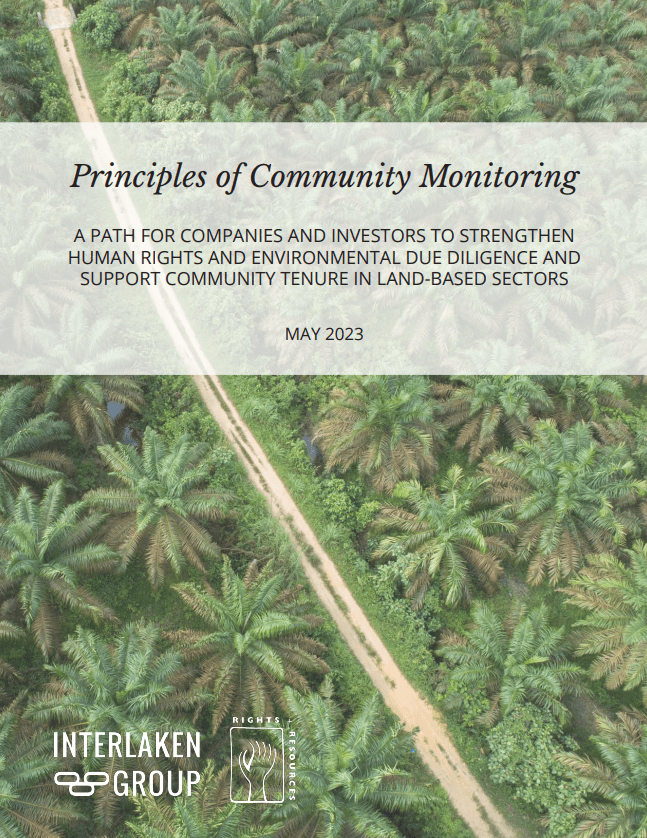Date: May 25, 2023
Companies and investors in land-based sectors have a responsibility to respect human rights and the legitimate tenure rights of Indigenous Peoples, local communities, and Afro-descendant Peoples (IPs, LCs, and ADPs). These responsibilities are evident in international frameworks, national laws, emerging regulation, industry best practices, and the social and sustainability policies and commitments made by progressive companies and investors. As a result, comprehensive human rights and environmental due diligence (HREDD) processes are required for companies and investors to proactively assess the potential impacts of their enterprises on collective rightsholders and establish measures to prevent, mitigate, and remedy potential harms tied to their business operations, supply chains, and investments. Secure tenure and the effective engagement of local rightsholders are critical to the success of HREDD, and community monitoring provides a pathway to building reciprocal and rights-based relationships that bridge the divide between communities and companies/investors.
Community monitoring (CM) refers to a process in which IPs, LCs, and ADPs assess and collect data on business operations that may affect their lands, territories, resources, rights, cultures, and livelihoods. Communities utilize this data to inform and shape business practices, prevent/address negative human rights and environmental impacts, and hold companies and investors accountable to crucial laws and standards. Where partnerships are developed, CM can help companies and investors improve their compliance with these laws and standards, including their internal policies and commitments, as well as reduce operational and reputational risks. Most importantly, CM supports more direct, balanced, and rights-based partnerships between communities and companies/investors, which are required to continually respect the legitimate tenure rights and self-determination of IPs, LCs, and ADPs—rights that are intrinsically tied to achieving global climate and biodiversity goals and associated corporate sustainability agendas.
In response to this burgeoning opportunity, this document shares emerging ideas, principles, and good practices to socialize the concept of CM among companies and investors in land-based sectors, as well as outline steps they can take to meaningfully engage with IPs, LCs, and ADPs to monitor and respond to the potential environmental and human rights impacts of their operations, supply chains, or investments.
This document is the result of a collective, multi-stakeholder process involving participants in the Interlaken Group, a leading platform for individual leaders from the corporate, investor, development finance, civil society, and rightsholder communities to advance private sector support for community land rights.
https://doi.org/10.53892/ATOU9714

